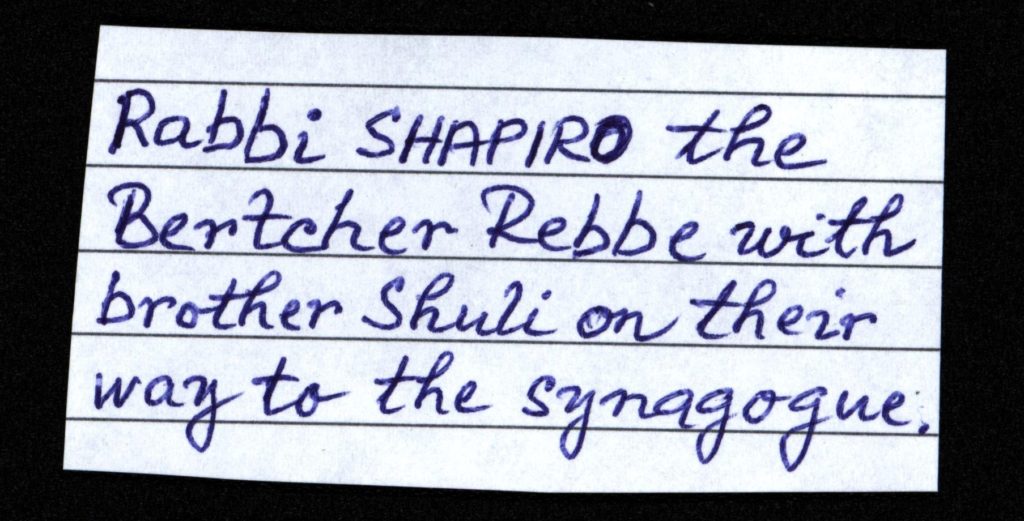Renowned for their singing and their knowledge of nigunim (Hassidic melodies), members of Hollender family were usually responsible for leading the shakhris (morning) and musaf (secondary) services in their religious community. Morris Hollender’s musical repertoire includes nigunim from the Bertcher Rebe, an expatriate Polish Hassidic Rabbi who lived with he Hollenders beginning in the late 1930s, unique prayer melodies handed down within his family, Yiddish Folk Songs that he learned from his mother, and cantorial pieces and original songs that he picked up from his brother, a student at the Yeshiva in Nitra.
“The Bertcher rebbe lived with us and we slept in the same room. He was a refugee from Poland who came to Beregszasz to seek a better life. His son was our music teacher and composed wonderful melodies. He was a very pious man and a very light sleeper. He would often wake up in the middle of the night and, every time he’d wake up, he’d recite the moyde ani, the prayer Jews say when they first wake up. He’d launch into it, and by the end of the first line he’d usually be asleep again. This would sometimes happen every few minutes…”


“One time in the early 1940s, during the Nazi era, the Bertcher Rebe was invited to a little Hungarian town on a shabes (Saturday, the Jewish Sabbath), and my brother was there. And because he came from Poland, escaping from the pogroms and everything, he didn’t have papers, and on shabes they came and arrested him and put him in jail – Usually when they took the Jews like that they’d take them to the forest and they were killed out there. And the commandant who had interrogated him went out in his car that afternoon and had an auto accident – and he died! And everyone in the region said ‘This happened because of what he did to the rabbi.” And they let the rabbi out right away. The people there believed that the commandant was punished because he arrested the rabbi, and they were worried about what might happen to them if they kept him.”
“At the end of shabes (the Jewish Sabbath) I would run from one shul to another to hear the melodies. I would start at our shul, where I’d go for shale-sudes (the third Sabbath meal). Then I’d run to hear a wonderful singer at another shtibl (small prayer house) and, if I was lucky I’d make it to the Grand Synagogue to hear Cantor Weiss make Havdole.”
